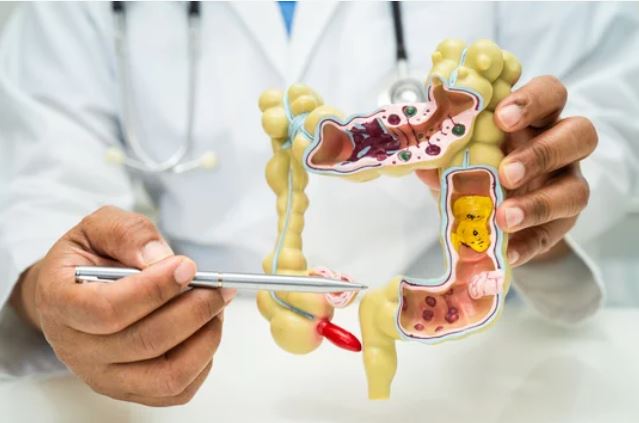Urinary Tract Infections (UTIs) are a prevalent and often uncomfortable health issue affecting millions of people worldwide. While they are commonly treated and manageable, understanding UTIs in depth can empower individuals to recognize symptoms early, seek appropriate treatment, and adopt preventive measures. This comprehensive guide will explore what UTIs are, their symptoms, causes, and effective remedies to help you maintain a healthy urinary tract.
What is a Urinary Tract Infection?
A Urinary Tract Infection (UTI) occurs when bacteria, often from the digestive tract, invade the urinary tract and cause an infection. The urinary tract includes the kidneys, ureters, bladder, and urethra. Although a UTI can affect any part of this system, it most commonly targets the bladder (cystitis) and urethra (urethritis). When left untreated, UTIs can escalate to the kidneys (pyelonephritis), potentially leading to more severe health issues.
Recognizing the Symptoms
Early detection of UTIs can significantly reduce discomfort and prevent complications. Common symptoms of a UTI include:
- Frequent Urination: A strong and persistent urge to urinate, even after just urinating. You may find yourself heading to the bathroom much more frequently than usual.
- Burning Sensation: A painful or burning feeling while urinating is a classic sign of a UTI. This discomfort can make the act of urination a distressing experience.
- Cloudy Urine: Urine may appear cloudy or murky, indicating the presence of pus or bacteria.
- Strong Odor: Noticeable changes in the smell of urine, such as a strong, unpleasant odor, can be a sign of infection.
- Pelvic Pain: Discomfort or pressure in the lower abdomen or pelvic region, often associated with bladder infections.
In more severe cases, UTIs can lead to systemic symptoms such as fever, chills, nausea, and vomiting. These symptoms suggest that the infection may have spread to the kidneys or bloodstream, requiring urgent medical attention.
Causes of UTIs
Understanding the causes of UTIs can help in both preventing and managing the condition. Several factors contribute to the development of a UTI:
- Bacterial Growth: Most UTIs are caused by bacteria from the gastrointestinal tract, particularly Escherichia coli (E. coli), which can enter the urinary tract through the urethra.
- Poor Hygiene: Inadequate personal hygiene, such as incorrect wiping techniques or infrequent bathing, can introduce bacteria into the urinary tract.
- Sexual Activity: Sexual intercourse can push bacteria into the urethra, increasing the risk of infection. Women are particularly susceptible due to the short distance between the urethra and anus.
- Urinary Tract Abnormalities: Structural abnormalities or blockages in the urinary tract, such as kidney stones or an enlarged prostate, can obstruct urine flow and increase infection risk.
- Weakened Immune System: Conditions that weaken the immune system, such as diabetes or certain medications, can reduce the body’s ability to fight off infections effectively.
Effective Remedies and Prevention
If you suspect a UTI, it is crucial to consult a healthcare provider for a proper diagnosis and treatment plan. UTIs are typically treated with antibiotics prescribed by a doctor. However, several strategies can help alleviate symptoms and reduce the risk of future infections:
- Hydrate Well: Drinking plenty of water helps flush out bacteria from the urinary tract. Aim to drink at least 8 glasses of water daily to keep your urinary system hydrated and functioning properly.
- Urinate Regularly: Avoid holding in urine for extended periods. Frequent urination helps expel bacteria from the bladder and reduces the likelihood of infection.
- Practice Good Hygiene: Maintain good personal hygiene by wiping from front to back and avoiding the use of irritating feminine products like douches or scented tampons.
- Cranberry Juice: Some studies suggest that cranberry juice can help prevent UTIs by preventing bacteria from adhering to the urinary tract. Opt for unsweetened cranberry juice for best results.
- Probiotics: Incorporating probiotics into your diet, such as yogurt or supplements, may help maintain a healthy balance of bacteria in the urinary tract, reducing the risk of infections.
When to Seek Medical Help
While many UTIs can be managed with home remedies and over-the-counter treatments, it is essential to seek medical help if:
- Symptoms Persist: If your symptoms do not improve with home treatment or if they worsen, it is crucial to consult a healthcare provider for a proper diagnosis and treatment plan.
- Severe Symptoms: High fever, chills, severe back pain, or symptoms of nausea and vomiting indicate that the infection may have spread beyond the bladder, requiring immediate medical attention.
- Recurrent UTIs: Frequent or recurring UTIs necessitate further investigation to identify any underlying issues, such as anatomical abnormalities or chronic conditions.
Final Thoughts
Urinary Tract Infections can be both distressing and disruptive, but with a comprehensive understanding of their symptoms, causes, and remedies, you can effectively manage and prevent these infections. By adopting healthy habits, staying hydrated, and seeking timely medical care, you can maintain a healthy urinary tract and enjoy a more comfortable and worry-free life.
